Related Research Articles
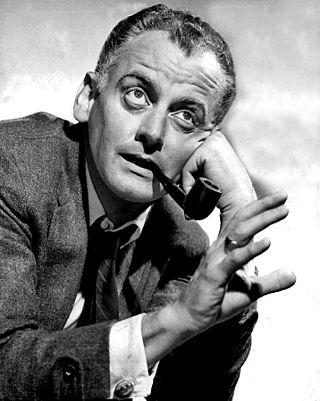
Arthur William Matthew Carney was an American actor and comedian. A recipient of an Academy Award, a Golden Globe Award, and six Primetime Emmy Awards, he was best known for his role as Ed Norton on the sitcom The Honeymooners (1955–1956).

"Old Folks at Home" is a minstrel song written by Stephen Foster in 1851. Since 1935, it has been the official state song of Florida, although in 2008 the original lyrics were revised. It is Roud Folk Song Index no. 13880.
The Gay Nineties is an American nostalgic term and a periodization of the history of the United States referring to the decade of the 1890s. It is known in the United Kingdom as the Naughty Nineties, and refers there to the decade of supposedly decadent art of Aubrey Beardsley, the witty plays and trial of Oscar Wilde, society scandals and the beginning of the suffragette movement.

Theodore Raymond Knight is an American actor. He is best known for his role as Dr. George O'Malley on the ABC medical drama television series Grey's Anatomy, which earned him a nomination for the Primetime Emmy Award for Outstanding Supporting Actor in a Drama Series in 2007.

"When You Were Sweet Sixteen" is popular song written by James Thornton and published in 1898. Inspired and sung by the composer's wife, the ballad quickly became a hit song in vaudeville. It has a long recording history that includes numerous popular singers, has been heard on film, and is considered a standard for barbershop quartets.

Sir George Dance was an English lyricist and librettist in the 1890s and an important theatrical manager at the beginning of the 20th century.
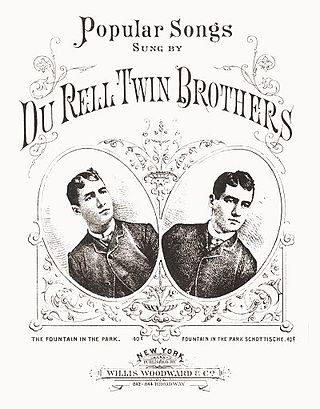
"The Fountain in the Park", also known as "While Strolling Throughthe Park One Day", is a song by Ed Haley, a member of the vaudeville act the Haley Brothers. Some authors believe the song was written by Robert A. Keiser, to whom Haley dedicated the song. The song was published in 1884 by Willis Woodward & Co. of New York, but dates from about 1880. It is best known for the lyric "While strolling through the park one day, in the merry merry month of May," and has been featured in numerous films, including Strike Up the Band (1940), in which it was sung by Judy Garland.

"Old Black Joe" is a parlor song by Stephen Foster (1826–1864). It was published by Firth, Pond & Co. of New York in 1860. Ken Emerson, author of the book Doo-Dah! (1998), indicates that Foster's fictional Joe was inspired by a servant in the home of Foster's father-in-law, Dr. McDowell of Pittsburgh. The song is not written in dialect.

Nashville Rebel is a box set by Waylon Jennings, released on RCA Nashville through Legacy Recordings in 2006. According to AllMusic's Stephen Thomas Erlewine, it is "the first comprehensive, multi-label Waylon Jennings retrospective ever assembled," comprising ninety-two songs recorded between [1958 and 1994, with selections from the majority of the singer's recording career. The first track of the box set is the Buddy Holly-produced "Jole Blon," released in 1958, while the last is "I Do Believe," a song produced by Don Was that was included on The Highwaymen's 1995 release, The Road Goes On Forever. The other material on the box set covers Jennings' career chronologically, with songs ranging from his years on RCA's roster to later compositions from his short-lived stay at Epic Records; it ignores, however, the tracks from Jennings albums released on independent labels. The majority of the singer's charting singles are included in the package, as are collaborations such as "Mamas Don't Let Your Babies Grow Up to Be Cowboys" with Willie Nelson and "Highwayman" with The Highwaymen. A notable addition is the previously unreleased "The Greatest Cowboy of Them All," a 1978 duet with Johnny Cash which was later recorded by Cash alone for A Believer Sings the Truth (1979) and The Mystery of Life (1991); two others, "It's Sure Been Fun" and "People in Dallas Got Hair," had never been released in the United States. Nashville Rebel was released on four CDs, with a 140-page booklet and liner notes by Rich Kienzle and Lenny Kaye.
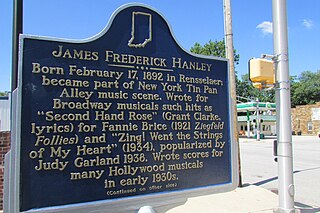
James Frederick Hanley was an American songwriter and author.
The Gay Anties is a 1947 Warner Bros. Merrie Melodies cartoon short directed by Friz Freleng and written by Michael Maltese and Tedd Pierce. The short was released on February 15, 1947. The title is a play on words for the "Gay Nineties", a phrase that references the 1890s United States.
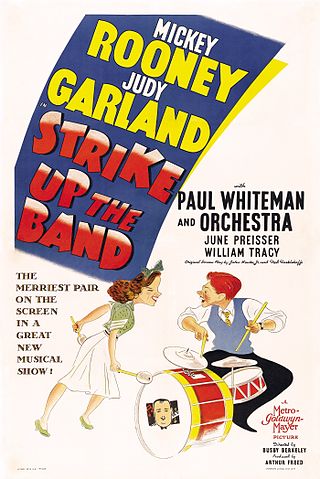
Strike Up the Band is a 1940 American musical film produced by the Arthur Freed unit at Metro-Goldwyn-Mayer. The film was directed by Busby Berkeley and stars Mickey Rooney and Judy Garland, in the second of a series of musicals they co-starred in, after Babes in Arms, all directed by Berkeley. The story written for the 1927 stage musical Strike Up the Band, and its successful 1930 Broadway revision, bear no resemblance to this film, aside from the title song.
A honeymoon is the traditional holiday taken by newlyweds.

Joseph Edgar Howard was an American Broadway composer, lyricist, librettist, and performer. A famed member of Tin Pan Alley along with wife and composer Ida Emerson as part of the song-writing team of Howard and Emerson, his hits included "Hello! Ma Baby" and Broadway musicals like "I Wonder Who's Kissing Her Now?".
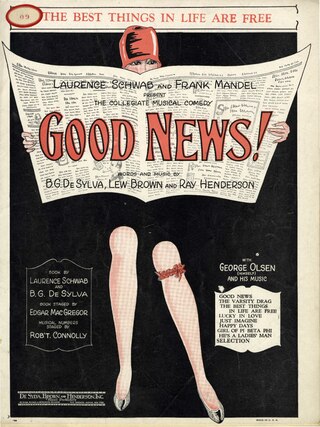
"The Best Things in Life Are Free" is a popular song written by the songwriting team of Buddy DeSylva and Lew Brown (lyrics) and Ray Henderson (music) for the 1927 musical Good News. It enjoyed a revival during the period from 1947 to 1950, when it was covered by many artists.

Bing Crosby's Treasury – The Songs I Love is an LP set recorded in 1965 and issued by a mail-order firm, The Longines Symphonette Society, an educational service of the Longines-Wittnauer Watch Company.
"Goodbye, My Lady Love" is a 1904 hit popular song written and sung by Joe Howard. The Henry Burr recording of the song was #3 on the charts, and it was a #5 hit for Harry MacDonough the same year. The song was later used in a 1924 Max Fleischer film called Song Car-Tunes.
"What's the Use of Dreaming?" is a popular song written and sung by Joe Howard. It appeared in shows in 1906 and 1907, and was a hit song in 1938. The song was revived for the 1947 biopic I Wonder Who's Kissing Her Now.
"Oh, Gee!" is a 1929 hit popular song written and sung by Joe Howard. The song was revived for the 1947 biopic I Wonder Who's Kissing Her Now.

The Gay Nineties Revue is an American old-time radio musical variety program. It was broadcast on CBS from July 2, 1939, to November 13, 1944. ABC broadcast a television version of the program in 1948–1949.
References
- ↑ Billboard - Jan 18, 1947 "JOE HOWARD'S GAY NINETIES REVUE (De Luxe 18) A name to reckon with since the gas-lit days of the gay nineties, ... Other everlastings include Saturday Night, Goodbye My 'Lady Love, Honeymoon, Hello Ma Baby, What's the Use of Dreaming..."
- ↑ The Complete Entertainment Discography, from the Mid-1890s to 1942 Brian A. L. Rust, Allen G. Debus - 1973
- ↑ James Robert Parish, Michael R. Pitts Hollywood Songsters: Garland to O'Connor 0415943337- - 2003 Page 369 "(1947), the fictional biography of 1890s' composer Joseph E. "Joe" Howard (played by Mark Stevens). June portrays an entertainer who performs many of Howard's tunes (the title song, "Honeymoon," and "What's the Use of Dreaming")"